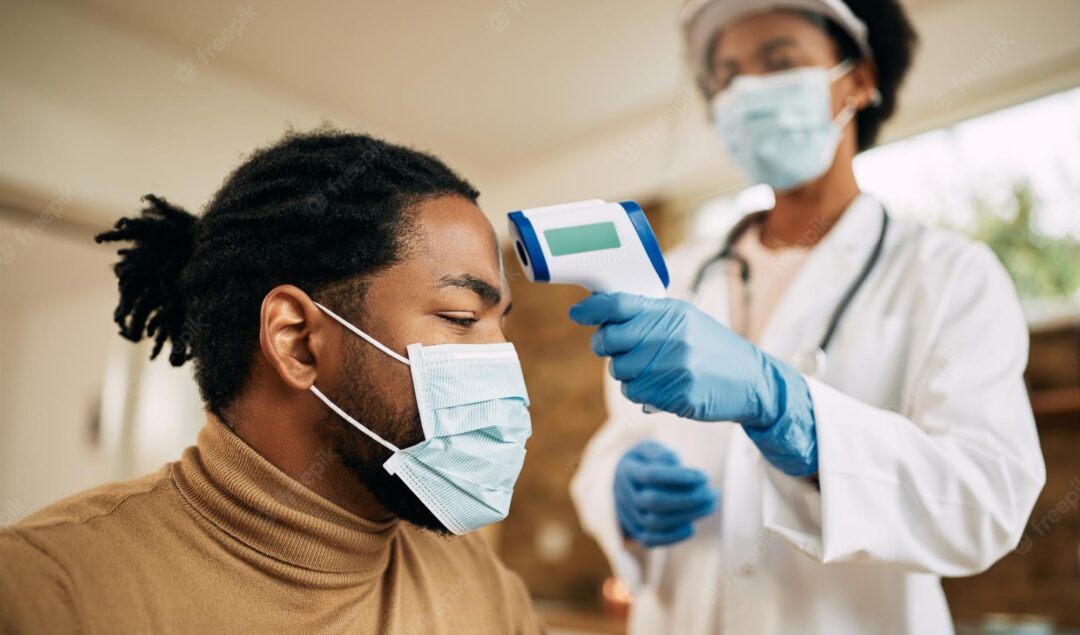Are Forehead Thermometers Missing Fevers In Black Patients?

Forehead thermometers are widely used in hospitals and care settings around the world.
However, the findings from a recent study suggest that these commonly used thermometers are less accurate in detecting fevers in Black patients than white.
Researchers found that 23% of fevers in Black patients went undetected when temporal (forehead) thermometers were used compared to when oral (in mouth) thermometers.
As temperature readings are used to determine levels of care, inaccurate readings may lead to missed fevers, delayed diagnoses, and increased mortality in Black patients, contributing to further distrust within the healthcare system.
“The finding of racial bias in one category of devices could have been an anomaly,” study author Dr. Sivasubramanian said in an interview with CNN.
“The finding of the bias in thermometers also leads to the important question of what other medical devices or diagnostics could be failing our patients. If fevers are going undetected, then notifications are being missed, and these missed notification pathways could lead to delays in antibiotics and could to worse outcomes for Black patients.”
Forehead thermometers are not the only medical device that inaccurately detects illnesses in Black patients. For example, scientists recently discovered that oxygen readings also heavily impacted patients of color during the pandemic.
On average, pulse oximeters overestimated Black patients’ oxygen saturation by 1.2 percentage points, 1.1 percent points for Hispanic patients, and 1.7 percent for Asian patients.
According to CNN, it has not been able to reveal why racial differences exist in medical equipment such as temporal thermometers or pulse oximeters. Still, it does suggest that people with darker skin tones aren’t given the necessary medical care and tests in the medical system.
In a tweet, researcher Siva Bhavani revealed that more research will be needed to fully understand the extent of this issue and how widespread it is.



